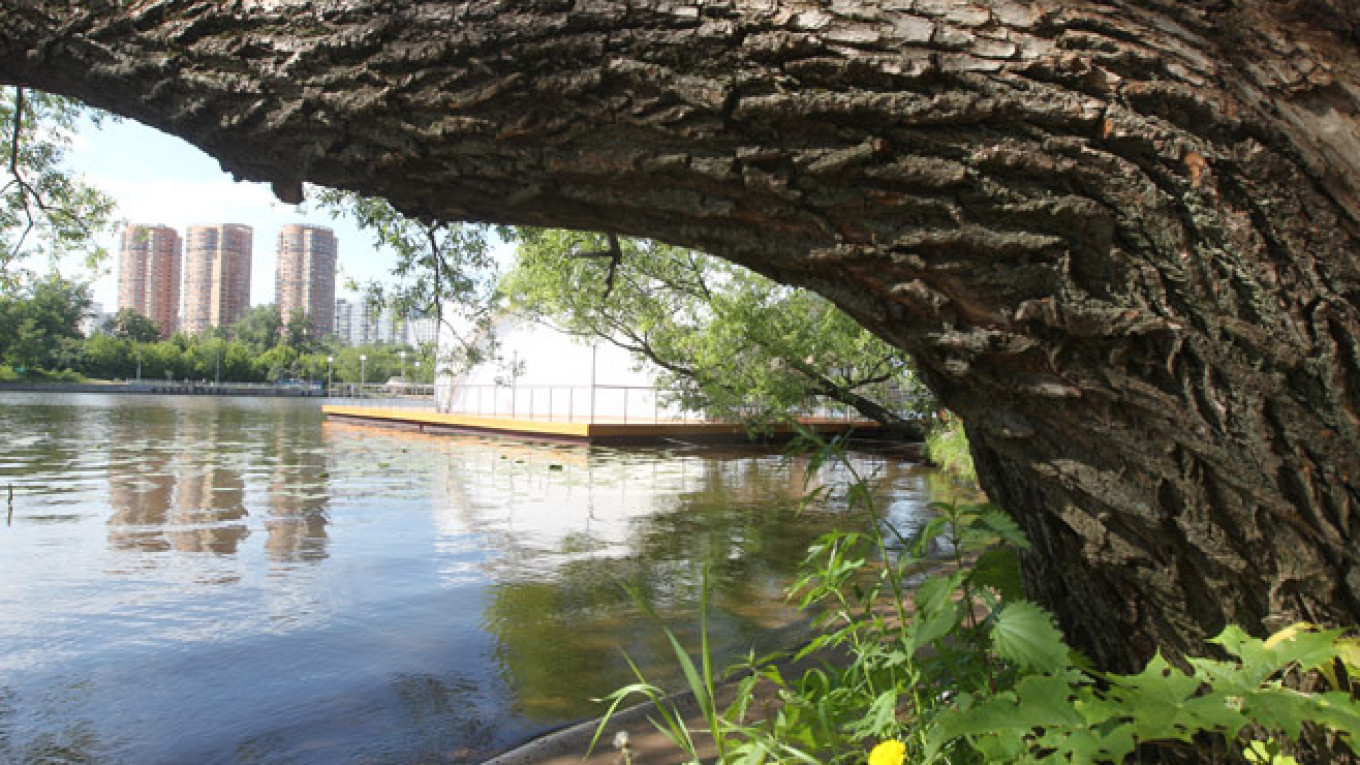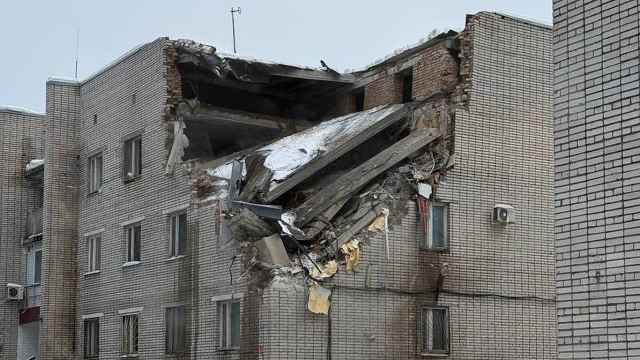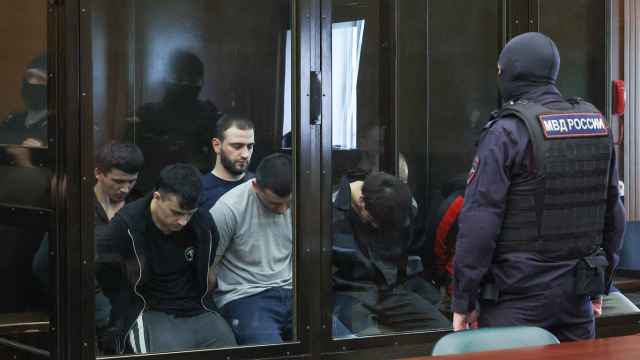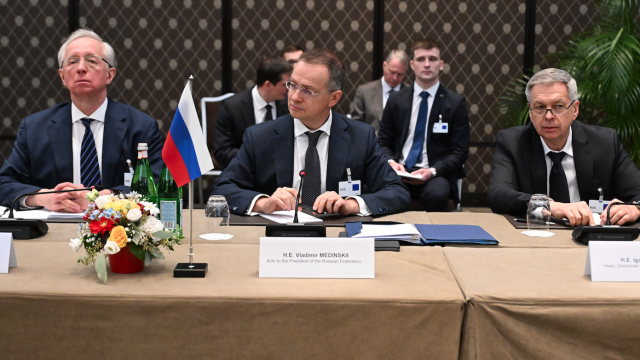Moscow nudists may soon lose their best-known and most popular beach in the Serebryany Bor natural park, as city authorities plan to expel the naturists from their traditional hangout in western Moscow and turn it into a regular beach.
"These people [nudists] are depraved. We can't encourage vice. They're completely out of their minds," Moscow City Duma deputy Lyudmila Stebenkova, who is spearheading the crackdown on the nudists, told The Moscow Times in a phone interview last week.
The suggestion to transform the beach, which has been used by nudists for almost 30 years, is in line with a rapidly developing trend of promoting conservative values and banning anything that the authorities, often supported by the Orthodox Church, label as non-traditional to Russian culture, from what officials describe as gay propaganda to erotic scenes in the writings of classic Russian writers.
Stebenkova, a member of the pro-Kremlin United Russia party, launched her anti-nudist campaign on her LiveJournal blog last week.
"Naked people have occupied the Strogino water meadow. … Their shindigs often end in fights, drinking or sex in public. But the police can't put a stop to this orgy because there are no laws regulating nudism," Stebenkova wrote.
"We will soon discuss this matter in the Moscow City Duma. I don't think beaches like this should exist," she added.
In May, a similar beach outside St. Petersburg was closed by local authorities. It had been a nudist beach since the 1960s, but this year it was labeled by local authorities as harmful to public morals.
No Facilities
Sergei Mityushin, head of the Moscow branch of the national Telord Naturist Federation, admitted in a phone interview with The Moscow Times that Serebryany Bor is not the ideal location for a nudist beach.
"There are a lot of people walking along the shore — old ladies, families with kids — and of course they're not pleased to see naked people," he said last week. "These kind of areas should be guarded and fenced off."
The shore of the Moscow River at Serebyany Bor became spontaneously popular with nudists in the mid '80s, he said. There were no beach facilities there and no fences.
A nearby piece of land surrounded by a concrete fence was later given to the nudists by local authorities in the mid-1990s, Mityushin recalled.
"But inside the fence there were piles of garbage — mostly construction materials. We didn't have the resources to remove the garbage and didn't use the area for several years, so the authorities took it back three years later, and we went back to the old spot," he said.
Mityushin acknowledged that without essential facilities like toilets or trash bins and proper control from City Hall, the beach where the nudists hang out now has become quite a messy place.
"It's very popular with alcoholics and criminals … They sit there, drink and leave a lot of trash that no one cleans up," he said, pointing out that regular beaches don't have these problems because they are serviced by the authorities.
Mityushin said that if the authorities paid as much attention to the nudist beach, it would be a completely different place.
He suggested Moscow officials wanted to take control of the beach because it is located in a prime location with very expensive development and real estate projects situated nearby.
Looking for Compromise
The leader of the Moscow nudists said their community would gladly consider an alternative place for their naked summer leisure.
"There's a quarry in Lyubertsy [a satellite town in the Moscow region] where some nudists also go. It's a good place, not easy to find for regular people, so if there were a beach with all the facilities, including a fence and guards, it would be great [as an alternative to Serebryany Bor]," Mityushin said.
"But no one from the city administration has ever contacted us or asked us to come and discuss options," he added with a sigh.
There is nothing to discuss, Stebenkova told The Moscow Times last week.
"In my opinion, it [nudism] should be banned for good," she said in a phone interview.
Her colleague in the City Duma, the deputy head of its commission for town planning, state property and land management, Oleg Soroka — also a United Russia member — was less categorical.
"Closing it [the beach] is a radical decision. I think we should decide this in a civilized manner. … It's a subculture, and if it exists, it's wrong to ban it," he told the Russian News Service radio station in an interview in late June.
The issue should be discussed with Muscovites, Soroka said.
"If the results of the discussion are positive [for the nudist beach supporters], we will start looking for appropriate places for the naturists," he was cited as saying last week by M24 news website.
No Isolated Case
In May, the Dyuny beach located 30 kilometers outside of St. Petersburg and popular with nudists since the 1960s was turned into a regular beach by local authorities, and nudity was outlawed there.
"We should protect our children from some old naked hairy pervert passing by," Vitaly Milonov, St. Petersburg's infamously conservative lawmaker known for his fervent anti-LGBT views, was cited by Russian News Service radio station as saying in April.
The local nudist community was outraged by the decision and threatened to hold a protest in St. Petersburg that would feature busloads of naked Finns, but the promise of Nordic nudists failed to materialize.
Contact the author at [email protected]
A Message from The Moscow Times:
Dear readers,
We are facing unprecedented challenges. Russia's Prosecutor General's Office has designated The Moscow Times as an "undesirable" organization, criminalizing our work and putting our staff at risk of prosecution. This follows our earlier unjust labeling as a "foreign agent."
These actions are direct attempts to silence independent journalism in Russia. The authorities claim our work "discredits the decisions of the Russian leadership." We see things differently: we strive to provide accurate, unbiased reporting on Russia.
We, the journalists of The Moscow Times, refuse to be silenced. But to continue our work, we need your help.
Your support, no matter how small, makes a world of difference. If you can, please support us monthly starting from just $2. It's quick to set up, and every contribution makes a significant impact.
By supporting The Moscow Times, you're defending open, independent journalism in the face of repression. Thank you for standing with us.
Remind me later.






